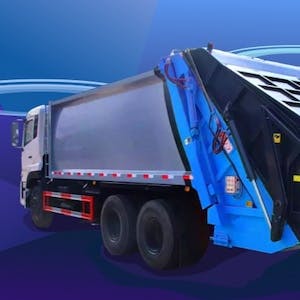- Home
- All updates
- EDGE Insights
- Industries
- Company Search
- My Watchlists (Beta)
EDGE Insights
Filter
EDGE Insights
Circular Materials (Q3 2024): Collaborations thrive amid slowed funding and changing regulations
Waste Recovery & Management Tech
Oct 14, 2024
Older updates:
EDGE Insights
Notarize: The online remote notarization service
Residential PropTech
Dec 7, 2024
EDGE Insights
Ramp: The corporate card and expense management company
Security
Dec 7, 2024
EDGE Insights
Betterment: The investment app with automated investing, financial planning, and cash accounts
Retail Trading Infrastructure
Dec 6, 2024
EDGE Insights
NVIDIA Q3 FY2025 recap
Information Technology
Nov 26, 2024
EDGE Insights
RegTech
Capital Markets Tech
Nov 25, 2024
EDGE Insights
Ripple: The blockchain-based digital payment company
Cryptocurrencies
Nov 17, 2024
EDGE Insights
H2O.ai: The open-source AutoML platform
Machine Learning Infrastructure
Nov 17, 2024
EDGE Insights
PsiQuantum: A pioneer in advancing quantum computing hardware development
Quantum Computing
Nov 17, 2024
EDGE Insights
State of tech in Financial Services: How AI, blockchain, and biometrics are forging the future
Financial Services
Nov 13, 2024
EDGE Insights
Valimail: The email authentication and security solutions provider
Machine Learning Infrastructure
Nov 12, 2024

Waste Recovery & Management Tech
By Eshan de Mel · Oct 14, 2024
Circular Materials (Q3 2024): Collaborations thrive amid slowed funding and changing regulations
This Insight covers quarterly updates on Circular Materials, including bio-based and recycled materials. Bio-based materials encompass those derived from natural sources, such as plants and mycelium, offering sustainable and biodegradable alternatives. Recycled materials involve creating value-added products by processing waste streams, including plastic, textiles, and electronic waste, through recycling methods. Companies featured in this Insight are covered in our Bio-based Materials hub and selected segments from our Waste Recovery & Management Tech hub, which includes recycled materials.
Key takeaways
Funding
- Circular Materials funding slowed to USD 1.2 billion (-25% QoQ and -72%YoY) as a result of fewer large funding rounds and moderation in the number of rounds observed. Nearly all of the funding was earmarked for facility expansion and product development. Debt funding accounted for 59%, with bio-based packaging company Stora Enso’s ~USD 472.7 million round and Indorama Ventures’ USD 200 million loan from the International Finance Corporation (IFC) to establish large-scale plastic recycling plants in Asia.
Partnerships
- Collaborations reached their highest in three years, maintaining a strong momentum from mid-2023. Product development partnerships were at the forefront (~67% of total partnerships), while the bio-based industrials and bio-based packaging segments comprised most collaborations (~32%). Highlights included Braskem’s first commercial sale of pyrolysis oil and Carbios licensing its PET bio-recycling technology.
- Notable incursions to the US market included joint ventures (JVs) from Indian battery recycler Lohum Cleantech and German bio-based packaging company PAPACKS.
Product updates
- Product launches focused on bio-based materials (~61% of total product updates), including Lignin Industries commercializing its novel bioplastic product. Several incumbents committed to incorporating circular materials into their products, including BASF switching to bio-based Ethyl Acrylate (EA) from Q4 2024 and The LEGO Group committing to use circular inputs for its bricks. We believe the shift is driven by regulatory pressures around recycling and the economic potential that circular chemicals offer as sustainable solutions are increasingly valued by the market.
- Battery recycling activity showed signs of recovery and was focused on establishing recycling facilities. Highlights included ERI, which opened its first battery recycling plant, and ProtechLiB, which developed a compact container-sized recycling plant for automotive batteries.
M&As
- Three incumbent-led acquisitions in the recycling space focused on technology integration and expanding geographic presence. The targets ranged from construction material recycling (Mark Desmedt) to plastic recycling (APK AG) and e-waste recycling (Telecycle).
Regulations
- California passed a landmark textile recycling law to ensure producers are accountable for textiles recycling. The bill is set to come into effect on January 1, 2030. The State also signed a bill to ensure EV battery manufacturers are responsible for managing end-of-life processes, but was later vetoed by the Governor of California on October 1, 2024.
Outlook
- Geopolitical uncertainty may be a near-term dampener: Rising tensions in the MENA region and looming US presidential elections may lead to a brief slowdown in activities in the Circular Materials space. As outlined in our Insights on industries affected by a Republican or Democratic presidency, sustainability rollbacks may be likely in the former case, while the latter will be more beneficial to a greener, sustainable future from a policy perspective. Nevertheless, we believe battery materials will still be a winning industry, as onshoring the battery minerals supply chain is treated as a matter of national importance, as US trade policy focuses on minimizing its reliance on Chinese exports. The US Department of Energy allocated USD 3 billion in funding for battery recycling, and startups like Princeton NuEnergy and Electra Battery Materials will likely emerge winners regardless of political outcomes.
- Incumbents are ramping up efforts to advance circularity efforts amid regulatory pressures: Our Circular Materials Quarterly Insight for Q2 2024 highlighted the role that regulatory tailwinds can play in advancing circular materials. Notably, this quarter, the State of California moved to introduce legislation to establish producer accountability for textiles and EV batteries. We believe these regulations are pushing apex-level advocacy bodies and leading industry participants to advance circular solutions. Examples include EuRIC Textiles for textile recycling in Europe and Ford Motor and United Auto Workers voicing support for California state legislature to have battery manufacturers accountable for EV battery recycling, as well as global chemical manufacturer BASF committing to exclusively offer bio-based EA from Q4 2024.
Contact us
Gain access to all industry hubs, market maps, research tools, and more
Get a demo
By using this site, you agree to allow SPEEDA Edge and our partners to use cookies for analytics and personalization. Visit our privacy policy for more information about our data collection practices.